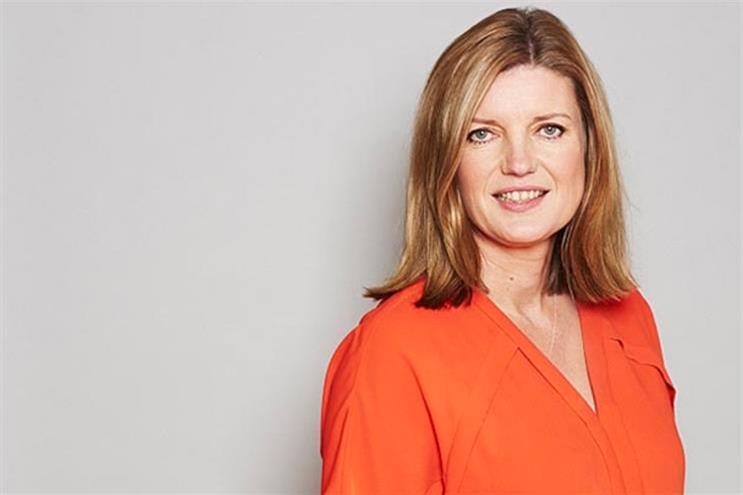What a year 2017 has been, both for newsbrands and for the media industry as a whole.
The thing that newsbrands do magnificently – the dissemination of trusted news in a quality environment – has been at the very heart of debates about the future of the digital media marketplace.
There’s a growing understanding that if you manufacture and disseminate fiction you will undermine democracy.
So it’s now almost inevitable that the toxic nature of fake news will continue to dominate the industry’s agenda in 2018.
And we’ll see even more shaming of companies that seek to profit by it.
It will again share a place on the agenda with a related and equally alarming notion – fake advertising.
Thanks to Procter & Gamble’s marketing boss Marc Pritchard and the speech he delivered back in January, ad fraud has been one of the defining topics of 2017.
So has the whole question of advertising appearing in unsuitable and harmful contexts.
Pritchard’s speech and the furore it provoked will ensure that 2017 will be remembered as a landmark year in the evolution of the advertising marketplace.
Some of us have been bemoaning advertising’s pockets of bad faith and debased currencies for years now.
But, in 2017, the tide turned. No more pursuit of easy options, no more ignoring the unacceptable, no more defending the indefensible.
Insidious background noise
Reaction from our industry bodies – ISBA, the IPA and IAB UK – has been heartening but, sadly, there’s still been an insidious background noise from some elements within the self-styled digerati who continue to insist that this year’s controversies are spurious, insignificant, reactionary and just the price we have to pay.
Even former Deputy Prime Minister Nick Clegg has been taking a swipe at newsbrands for daring to draw attention to failings – and worse – at Google and Facebook.
Clegg really does have a remarkable talent for placing himself on the wrong side of a moral argument – and indeed history. It’s sobering to reflect that, once upon a time, he prided himself on being, in the broadest sense, a liberal.
However, as we head into 2018, one of the reasons for my optimism is the notion that (whisper it) we may be witnessing the beginning of the end for the "new normal".
The new normal was phrase invented by economists following the financial crisis of 2007-08 to indicate that the rules of business engagement had changed irrevocably.
In other words, economic or management inputs could no longer be relied upon to deliver the output results you might have expected pre-2008.
For our business, one of the most significant strands of received wisdom to come under attack was the notion that marketing spend helps drive sales growth.
And all too often this has been conflated with a related notion that, in the new economy, you can always expect to get something for (next to) nothing. That you can, for instance, focus your spend on cheap, long-tail digital inventory and still achieve positive sales outcomes.
Guess what? You can’t.
Cut spend and sales will stall
In late 2016 and early 2017, some of the world’s largest advertisers responded to this discovery by doing something even more outrageous – just as they were poised, trembling, on the threshold of an upswing in sales growth, they cut marketing spend, sometimes severely.
Some were under severe pressure from shareholder activists to deliver improved margins – and this was the quick fix they hit upon. But it backfired.
Back in the summer, a number of investment banks (for instance, Credit Suisse, Citi and Macquarie) weighed in and warned that big advertisers have been flirting, perilously, with a vicious circle.
If you cut marketing spend, sales will stall, you’ll have less margin to play with - and you might end up having to cut marketing spend even more.
Happily, some of the world’s corporations have been willing to listen to market advice. 2017 has seen a revision of strategic priorities. Let’s call it a return to common sense.
The new normal is also now fake news. The new normal involves paying for the privilege of appearing in an environment likely to damage your brand. Unless, of course, your ad doesn’t appear. Or, indeed "appears" in such a manner that few people have the opportunity to see it. Which in many cases is presumably what you’d call a blessing in disguise.
Wanting to see the demise of the new normal isn’t a nostalgia trip.
This isn’t about turning back the clock to a time before the Google-Facebook duopoly – that really would be crazy – but looking forward to returning to a marketplace where the ground rules are based sound business sense and transparency.
A market where hard work and quality and delivery are rewarded. A world where genuine, tangible economic growth is possible – where incomes will start to rise again and people will have more money to spend on the goods that advertisers are trying to sell.
Will it happen? Why not?
In 2017, the world, not least the media world, woke up and declared war on the toxic, the lazy, the cynical and the downright fake. We’re going to see that battle continuing and it’s one that’s definitely worth winning.
Vanessa Clifford is chief executive of Newsworks


